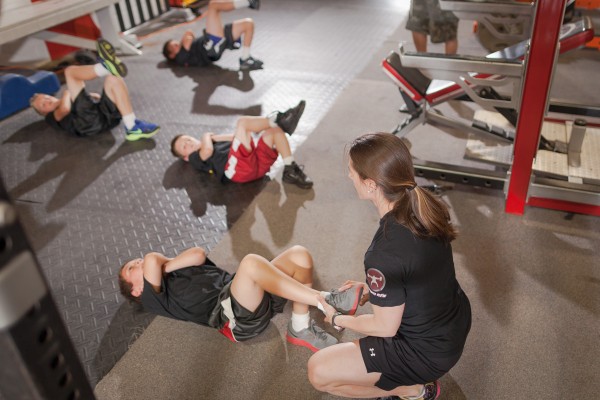
As a meathead, you may be unaware that Swiss tennis player Roger Federer did something amazing on Sunday.
He won his 8th Wimbledon title.
I did a little search to give all you non-tennis followers a little understanding of how incredible that is.... but his accomplishments were too great to list. 5 of his Wimbledon wins were consecutive from '03-'07. He has 19 Grand Slam titles.... seriously... the list goes on. Just do a quick Google search.
So he wins on Sunday (in 3 sets... and he didn't lose a set the entire Wimbledon series... that's like going 9 for 9 in several consecutive meets) and during the match the commentators kept stating that they were a bit surprised to even see Roger back this year, let alone win.
You see, Roger hit a slump... a big one. After huge years from 2002-2009, things slowed down. He managed a Wimbledon win in 2012, but then hit a major drought for the next 5 years....
5 years...
After his final loss in 2016, he decided to take some time off. Time away from competing. Time to rest and recover. Clearly his body needed it... and I'm sure his mind did too.
As the press pulled him aside after this win, they asked him, "So... you decided to take 6 months off last year... why and what did you do?"
"Well... I needed the time to get healthy again. I basically went to physio and the gym. I took that time to rest and recover and it paid off."
No sh*t!
The commentators were so astonished by him taking that time to not compete. That someone of his caliber would (and could) do that.
I couldn't help but think of all the athletes I've coached over the years. From D1 college kids to 10 year old youngsters.... how coaches and parents just keep pushing to play play play... compete compete compete... drill drill drill.... more more more.
Roger's statement should be just a small example of how time off can truly benefit an athlete. Roger's body didn't forget how to play tennis. He didn't forget how to serve, or backhand. He didn't lose a step. In fact, he was able to get his body healthy and moving again and play better.
If your athletes (or child) are constantly doing lessons, playing on a travel team year round, on top of regular practices, weight room, conditioning and more private lessons, think long and hard about how that will affect them in the long run... not just physically but mentally as well.
Yes, young athletes need to become a "master" at their sport. No professional athlete made it to the top without mastering their craft. They do need time to improve their weaknesses and become a better technician in their sport. There are times they can do small, non-intensive drills in the off-season to improve, but make sure you're not dragging them through the dirt. They also need time away from their sport and spend some time in the gym weight training (or rehabbing).
Elitefts is chock full of strength coaches (myself included) who continually talk about developing athletes and what an off-season should be like. Ask questions here. We are more than happy to help. Find a good strength coach in your area to help you manage your athletes' off-season development. (If you are unsure if there is a good strength coach in your area, let me know. I am connected with hundreds of coaches around the country who I know and trust.)
In the meantime, take Roger Federer's example and give your athletes a fighting chance for long-term success.








